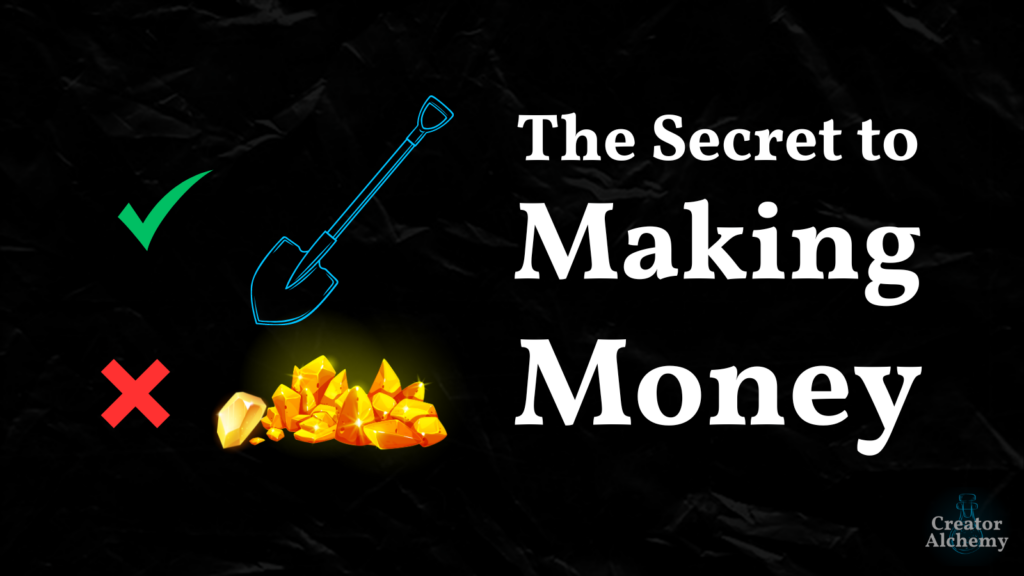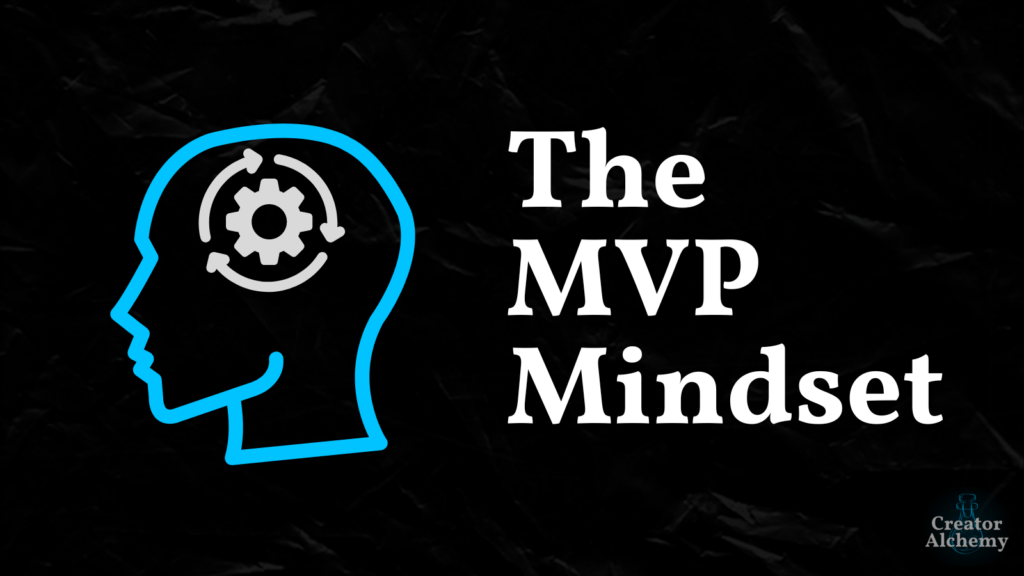Who do you create content for?
You might think it’s your audience, but most people actually don’t create with their audience in mind.
They create content with someone else in mind, which is why their content sucks.
You might be making the same mistake.
But until you realize what you’re doing, you can’t fix it, and your content will continue to suck despite how much effort you put in.
Here’s what I mean…
•••
How often has this happened to you…
You start with a rough idea of what you want to share with your audience—something you know they’ll find super valuable.

You work your ass off to refine your idea so it’s as good as you can make it.
This polished little diamond of an idea has huge potential—it’s super tight, highly valuable, and perfectly positioned for your audience.

But what might my critics say? What fault could they find? You think.
So you add a few caveats to your piece.
After all, you could’ve gone into more nuance in a couple places, and you don’t want people to think you’re oversimplifying things or not taking certain situations into account.
But every caveat buries your idea a little bit…

Then you think about what your college professor—the one who made every one of your papers look like a murder victim with all the red ink from finding every single fault or comma splice—might have to say about this piece.
So maybe you add some citations or statistics that don’t really add to the piece, but make it feel more “official.” Because, as one of my supervisors told me, “Nobody cares about what you have to say until you have ‘Dr.’ in front of your name.”
Then you think about the trolls in your comments, a critical family member, or an old boss whose superpower was finding fault with everything you did.
So you preemptively address each of the possible faults they could complain about.
On and on you go, until your once-awesome-idea gets buried under a mountain of caveats, qualifiers, and endless examples…

But, buddy, you really showed your imaginary critics!
You spent 80% of your piece anticipating and addressing every one of their concerns.
So you hit publish on this monument dedicated to every critic who might ever try to tear you down.
Then you say to your audience:
Hey, I made this for you. There’s a great idea buried underneath all this bullshit. Here’s a shovel. Get to digging.

And you expect your audience to start singing “Whistle while you work,” as they happily dig for that awesome idea you started out with.
Because once they finally get to that little diamond, they’re going to be blown away by its awesomeness.

But they don’t dig.
They don’t pick up the shovel.
And eventually, they don’t even open anything you create.
Here’s a painful truth: It isn’t your audience’s job to dig to find the point of your content.

It’s your job to refine your ideas into diamonds, then share those diamonds with your audience.
Your idea should be obvious, shiny, and easy to get to.
If people aren’t responding to your content, it’s probably because you’re burying your ideas.
And the reason you’re burying your ideas (and your content isn’t resonating with your audience) is because you aren’t creating for your audience—you’re creating for your critics and expecting your audience to do all the digging.
•••
I get it.
Being a creator is hard.
You’re constantly exposing yourself and your ideas to criticism.
Because most people would rather be critics in the stands than the creator living in the arena.
It’s easy to think if you create a piece that addresses all your critics’ possible complaints, it’ll be the perfect piece.
But critics will always find fault with what you create.
I fell into this trap early in my writing career. I thoughts about what my critical college professors or colleagues might say anytime I’d talk about something psychological.
Nothing I say is 100% accurate 100% of the time (hence why we all have a Terms and Conditions section on our websites). Anytime I talk about psychology, I’m sure there’s a brand new study that adds a layer I hadn’t considered, a citation I should’ve used to bolster my argument, or a complex theory I oversimplified.
If you look hard enough at anything I’ve ever said, there will always be some fault you can find.
But if that’s the kind of person you are, you’re not who I’m writing for.
I’m not writing for my critical peers, former colleagues, or snooty academics.
I’m writing for creators and entrepreneurs who want to reach their potential, and I do that by sharing insights and strategies from psychology.
Sometimes that might mean referencing something like Maslow’s Hierarchy of Needs, even though it hasn’t been scientifically validated—because it gets the point across that too many people settle and live in mediocrity instead of striving to reach their potential by building a fulfilling life and thriving business.
So my early articles were trash. Filled with caveats to appease my imaginary (and real) critics.
And guess what? I wasn’t attracting the audience I wanted, and the tiny audience I did attract wasn’t willing to dig through all the bullshit to find the polished diamond I’d spent so long refining for them.
But as soon as I stopped writing to my critics and started writing to my audience—and accepted there would always be fault to find with anything I published—my content got better, my audience got bigger, and my relationship with my audience got deeper.
So if you’re struggling to resonate with your audience despite putting in tons of effort, it might be because you’re burying your polished diamond to appease your critics.
Refine your idea, then let it shine on its own.

Don’t bury it under a mountain of caveats, qualifiers, and endless examples.
Create for your audience, not your critics.



